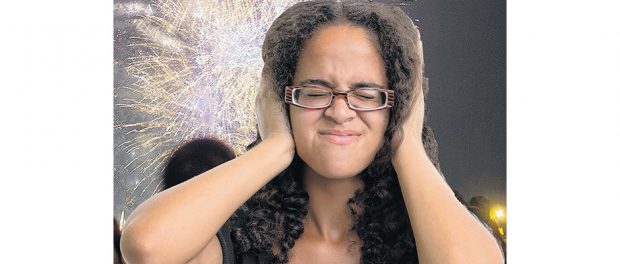LiveSmart: At Work or Play, Be Sure to Protect Your Hearing

[This article was written by Debra Trees, Au.D., CCC-A, Doctor of Audiology, Audiology Supervisor at St. Peter’s Hospital Hearing and Speech.]
Spring is here! From backyard barbecues on Memorial Day to outdoor concerts and fireworks, the arrival of spring and summer in upstate New York can be a great time. But there’s a danger that’s painless, odorless, tasteless, invisible and toxic: noise-induced hearing loss.
According to the National Institute on Deafness and Other Communication Disorders (NIDCD), approximately 37.5 million American adults report some trouble hearing. May is national Better Hearing and Speech Month, which makes now the perfect time to remind everyone that noise-induced hearing loss is 100 percent preventable.
The pounding noise from concerts or constant use of headphones set too loud is an obvious source of hearing problems. However, repeated exposure to noise from lawnmowers and leaf blowers, power tools, motorcycles and firearms can gradually cause hearing damage, as well. The constant exposure to noise permanently destroys the sensitive hair cells in the inner ear.
You enter the red warning zone for hearing problems at 85 decibels, or the sound of heavy traffic. Normal conversation is about 60 decibels. A rock concert may reach 120; motorcycles, fireworks and small firearms can hit 150.
You may be developing a hearing problem if you have a vague sense of pressure in the ears, talk from others seems to be muffled, or you have a ringing that persists even in a quiet room.
To protect your hearing, ask these simple questions: How loud? How long? How close? And follow these tips:
- If the person next to you can hear the sound out of your earphones: IT’S TOO LOUD!
- Ditto if you must shout to be heard or can’t hear another person two feet away.
- Wearing hearing protection is simple and effective. You can purchase foam plugs made for noise reduction and even keep a pair in the car to use any time.
- Protect the ears of young kids, even at outdoor summer block concerts. For those who don’t like the feel of the in-ear foam plugs, over-the-ear safety earmuffs are an option.
- If you suspect you have a hearing problem or have a constant ringing in the ears, see your physician and have a hearing test conducted by an audiologist.
St. Peter’s Hearing and Speech Department in Slingerlands offers comprehensive care for hearing and speech problems, from diagnosis through rehabilitation. Children and adults can be tested and, if appropriate, fit with hearing devices that can make it easier to hear the sounds of life. There are also speech-language pathologists on staff who can treat patients with speech disorders including fluency, articulation, or voice.
For information, please call 518-475-1818.







